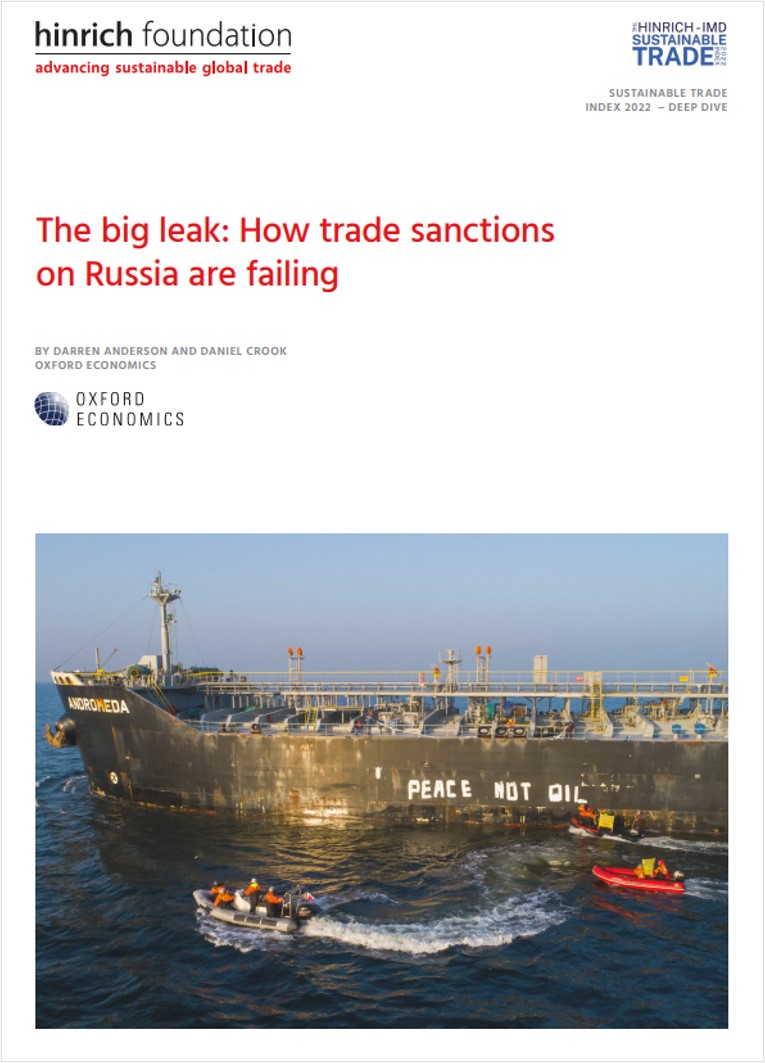Trade and geopolitics
The big leak: How trade sanctions on Russia are failing
Published 23 May 2023
Russia’s invasion of Ukraine in February 2022 saw a significant escalation in sanctions imposed on the country since its annexation of Crimea in 2014. Despite this, an econometric analysis by Oxford Economics commissioned by the Hinrich Foundation indicates that Russian trade has returned to pre-war levels, owing largely to Moscow's ability to redraw supply lines around Western sanctions, aided by the remnants of its trading partners, key among which are China and India.
Are sanctions working? The effectiveness of international trade sanctions has been increasingly questioned as geopolitical rivalries and economic fragmentation threaten to blunt the impact of such weapons. Trade sanctions exert a direct impact on the sustainability of trade, which the Hinrich-IMD Sustainable Trade Index (STI) measures using 30 key indicators.
We commissioned Oxford Economics to undertake an econometric analysis of trade data to understand and assess how trade responds and adapts to sanctions. The findings were striking. Broadly, the effectiveness of sanctions invariably dissipate with the passage of years. More particularly, in the case of Russia, both its exports and imports have already by now recovered to levels prior to February 2022, when Moscow's invasion Ukraine triggered the most comprehensive suite of economic and financial sanctions ever dropped by an international coalition of nations against a single economy. Thanks to trading partners such as China and India, Russia has found new logistical solutions and ways to acquire technologies and parts necessary for continued production and investment. Russia's share of the global energy output and the absence of universal multilateral support for punitive actions have blunted the sanctions.
Russia appears to have offset much of the loss of goods it imports from the European Union, such as machinery and consumer products, with an increase in imports from China, Turkey, and Armenia.
More broadly, the authors find that while trade sanctions are generally effective, the magnitude of the decline in trade volumes they trigger is relatively limited. Their effectiveness also tends to dissipate the longer the sanctions are imposed, meaning that sanctions regimes begin to leak with every passing year.
This report is part of the Hinrich-IMD Sustainable Trade Index 2022.
© The Hinrich Foundation. See our website Terms and conditions for our copyright and reprint policy. All statements of fact and the views, conclusions and recommendations expressed in this publication are the sole responsibility of the author(s).









